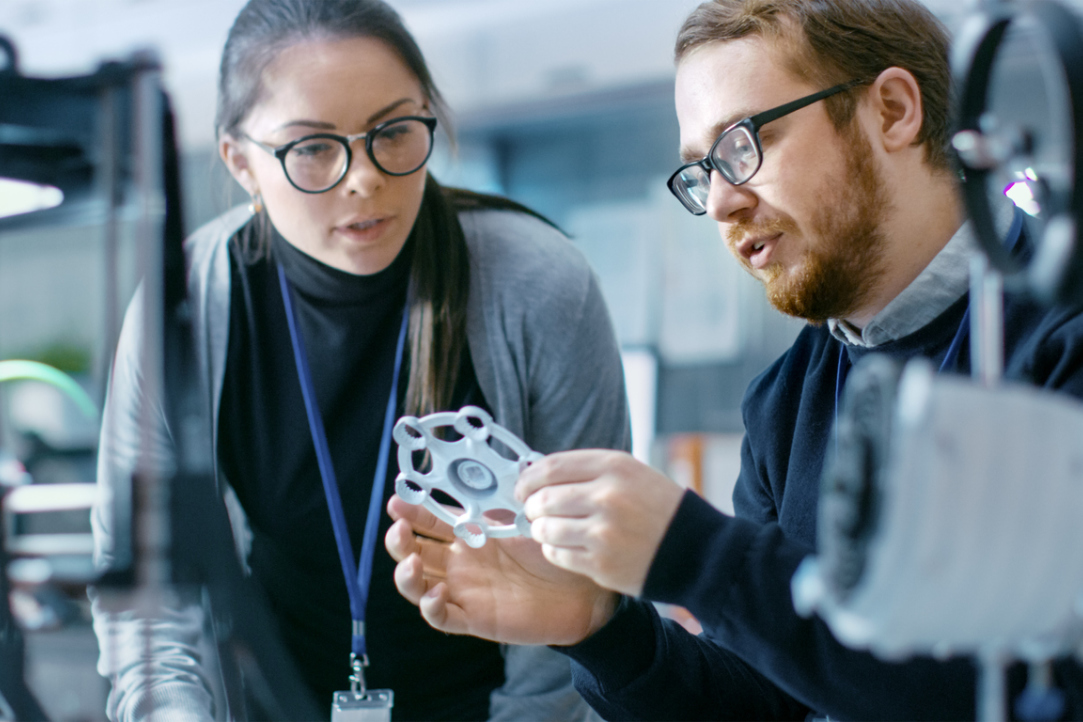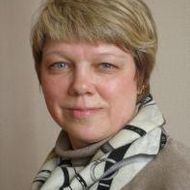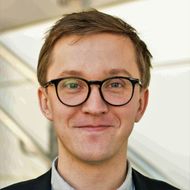Researchers Assess Student Performance in Mathematics, Physics, and Critical Thinking

A group of researchers representing four countries summed up the results of the Supertest, a large-scale study of the academic performance of engineering students in Russia, China, India, and the United States. It is the first study to track the progress of students in computer science and electrical engineering over the course of their studies with regard to their abilities in physics, mathematics, and critical thinking and compare the results among four countries. The article about study was published in Nature Human Behavior.
The HSE Institute of Education played a key role not only in collecting and analyzing data from Russia, but also in contributing to the development of key assessment tools for the project. The Institute conducted a full range of psychometric studies in addition to substantiating the quality of the measurements and the comparability of results across different countries.
The Supertest was initiated by Stanford University in partnership with HSE University Moscow, the Educational Testing Service (ETS), and universities in China and India. The study authors include Prashant Loyalka, an Associate Professor at Stanford University and a visiting leading research fellow at the HSE International Laboratory for Evaluating Practices and Innovations in Education; Igor Chirikov, a senior researcher at the Center for Studies in Higher Education at UC Berkeley and an affiliated researcher at the HSE Institute of Education; and Elena Kardanova and Denis Federyakin, leading researchers at the Centre for Psychometrics and Measurements in Education at the HSE.
More than 30,000 undergraduate students participated in the study. The researchers collected a sample of students from elite and large universities, roughly equal in number for each country. In Russia, the sample included students from six Project 5-100 universities and 28 other universities. Their skill development was measured three times: upon entering university, at the end of their second year, and at the end of their studies.
The task of the specialists of the HSE Centre for Psychometrics and Measurements in Education was to develop math and physics tests that had questions that would be neutral for students of different countries and would yield adequately comparable results across different countries.
Elena Kardanova, Director of the Centre for Psychometrics and Measurements in Education

‘Over the course of analyzing the test results, we have proven that we were able to achieve both tasks. Testing in different countries was conducted in accordance with the same rules, with the assistance of specially trained examiners. All students were offered the same incentives to participate. We additionally tested the sensitivity of the results to possible differences in student motivation.’
The Supertest showed that at the start of their studies, Russian students perform lower than Chinese students in mathematics and physics, but higher than students from India in mathematics. After two years of study, the gap between Russian and Chinese students narrows, while Indian students catch up with Russian students in mathematics.
One finding of the study that is cause for concern relates to engineering students’ critical thinking skills. Initially, upon entering university, Russian engineering students outperform Indian students while performing lower than Chinese students. In terms of developing these skills over the course of their studies, students of all three countries perform lower than students in the United States. ‘We found that, as the students progress in their studies, their critical thinking skills remain approximately the same in Russia and India, but significantly decrease in China. On the contrary, American students show improvement,’ said Igor Chirikov. This is a serious problem, the researchers note, because technologies change rapidly, and in order to be able to master new ones, you need not only a firm grasp of the subject area, but, above all, skills of the 21st century.
Another unexpected result was the gradual decline of academic skills among engineering students in China.
Igor Chirikov, Affiliated Researcher at the Institute of Education, Senior Researcher at the Center for Studies in Higher Education at UC Berkeley

‘Students at Chinese universities have an extremely high level of skills upon enrollment, but over the course of their university studies this level decreases: this applies to physics, mathematics, and critical thinking. We observe this at both elite and large universities, albeit to different extents. A possible explanation lies in the way undergraduate education is organized in China, where institutions put emphasis on lectures, and instructors are not as demanding as in Russia and India. As a result, students have less motivation to learn and are not held accountable for developing skills.’
The results of the Supertest provide insight into how graduates perform in the globally competitive market of future computer science and electronic engineering professionals. Each represented country is renowned for its engineering expertise, and it is the Chinese, American, Russian, and Indian specialists migrating to different countries who largely determine the technological progress around the world. The balance of power in this sphere of education can play a decisive role in who will win the technology race tomorrow.
See also:
Higher Education and State-building: Methaphors of Universities Revisited
How has higher education influenced the evolution of nations since the Second World War—and vice versa? Stanford professor Mitchell Stevens and Institute of Education researcher Ekaterina Shibanova have tried to answer this question in a special issue of the European Journal of Higher Education. They invited renowned historians, political experts, sociologists and economists to develop ‘a consensus on the role of higher education in political and social history after 1945.’ The special issue was created with input from researchers from Canada, Luxembourg, Russia, Germany, France, the UK, and Sweden.
How Academic Dishonesty Seeps into the Workplace
How does academic dishonesty of students correlate with honesty in further work? A group of scientists, including Evgenia Shmeleva, Research Fellow at the HSE Institute of Education, conducted research answering this question. During an open online seminar of a research group dedicated to ‘Academic Ethics in the Educational Context,’ Evgenia Shmeleva presented ‘Does Academic Dishonesty Seep into the Workplace? Evidence from a Longitudinal Study,’ which was prepared jointly with Igor Chirikov (University of California at Berkeley-HSE University) and Prashant Loyalka (Stanford University-HSE University)
Why High-Ability School Graduates Choose Low-Quality Universities
According to the findings of HSE researchers, up to one-quarter of school graduates in Moscow enrol in low-quality universities despite scoring highly on their Unified State Exam, the final school exam and a standard university admission mechanism in Russia. This academic mismatch limits their life opportunities and often stems from unequal starting conditions in the family and at school.
World Bank—HSE University Webinar Examines the Costs of School Closures During the Covid-19 Pandemic
On May 21, the joint webinar series, ‘Education under COVID-19: Problems, Solutions, Perspectives, Research’ began with a session about the effects of school closures under the pandemic. Harry Anthony Patrinos of the World Bank presented the results of a model that he and a team of researchers developed in order to predict the extent to which the closures may reduce learning and lead to future losses in labor productivity and earnings for today’s students. The webinar was moderated by Isak Froumin (Head of the HSE Institute of Education), while Professors Tommaso Agasisti (School of Management, Politecnico di Milano) and Sergey Kosaretsky (Director, HSE Centre of General and Extracurricular Education) served as discussants.
‘No One Expected Online Education to Receive Such a Powerful Impetus for Further Development’
On March 17, the Institute of Education hosted its annual seminar dedicated to issues in education. This year’s seminar addressed the topic, ‘Higher Education during an Epidemic: The Possibilities of Digital Technology’. For the first time in eight years, the seminar participants—representatives of Chinese, American, and Russian universities—participated in the event remotely.
A Journey of a Thousand Miles
Ruoqi Cao, from Harbin, China, graduated from HSE University’s Masters’ programme in International Business. She is now working on her PhD at the HSE Institute of Education, where her research focuses on the influence of higher education on the economics of the regions in Russia and China. She has shared with HSE News Service her story of coming to study and work in Russia.
International Higher Education Conference Opens at HSE University in Moscow
The tenth International Russian Higher Education Conference (RHEC) has commenced in Moscow this week and will last until October 25. This year’s conference focuses on ‘Contributions of Higher Education to Society and Economy: Global, National and Local Perspectives.’
American SemyonovAward Recipient to Look at Higher Education’s Relation to Civic Engagement in the Russia
Radomir ‘Ray’ Mitic just completed his PhD at New York University and will be joining the Council of Graduate Schools as a postdoctoral fellow this coming fall in Washington, D.C. This summer, he received an HSE SemyonovAward Research Internship to research civic engagement among Russian university students at the Institute of Education at HSE University. Last week, he participated in the International Summer School of Higher Education at HSE – St. Petersburg, and now he is conducting field research in Moscow. HSE News Service spoke with Ray about his research, his impressions of the two Russian cities, and his future plans.
International Advisory Committee Recommends a More Focused Approach
Members of the International Advisory Committee (IAC) and the HSE administration have discussed the results of the committee’s annual meeting.
‘HSE Is in a Class by Itself.’ Annual HSE International Advisory Committee Meeting Commences
New faculties, personnel development, internationalisation, and much more – these are all things on the agenda of the annual International Advisory Committee (IAC) meeting currently taking place in Moscow.


